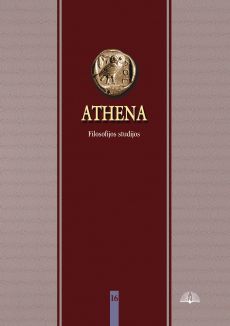Dirbtinis intelektas moterišku kūnu filmuose Ex Machina ir Ji
Female Corporeality of Artificial Intelligence in Ex Machina and Her
Author(s): Justina Žiūraitė-PupelėSubject(s): Gender Studies, Structuralism and Post-Structuralism, Philosophy of Mind, Film / Cinema / Cinematography
Published by: Lietuvos kultūros tyrimų
Keywords: artificial intelligence; science fiction film; female corporeality;
Summary/Abstract: The article explores how artificial intelligence is constructed in a female body and showcases the boundaries between human and technological traits, as well as the relationship between human beings and technology. The article defines the notion of artificial intelligence and discusses how artificial intelligence is portrayed in science fiction films. The article does not attempt to provide new theoretical insights into artificial intelligence but, instead, to show how artificial intelligence is characterised in the context of modern science fiction films. Two contemporary science fiction films, which focus on the artificial intelligence in the female body, are analysed: Alex Garland’s Ex Machina (2014) and Spike Jonze’s Her (2013). The analysis of the films showcases the blurred lines between being a human and being a robot: AI in the female body is portrayed as having adequate cognitive abilities and an ability to experience or to realistically imitate various mental states. The AI embodiment found in the films explores different narratives: the anthropomorphic body (Ex Machina) motivates to get to know the world and thus expands one’s experience, while the partial embodiment (Her) “programs” intellectual actions and development beyond the human body. Ex Machina highlights the anti-humanity of the female robot: another (human) life is devalued in order to pursue a goal. On the contrary, Her highlights the hyper-humanity of the operating system: continuous improvements exceed the boundaries of communication with other people.
Journal: Athena: filosofijos studijos
- Issue Year: 2021
- Issue No: 16
- Page Range: 69-90
- Page Count: 22
- Language: Lithuanian

